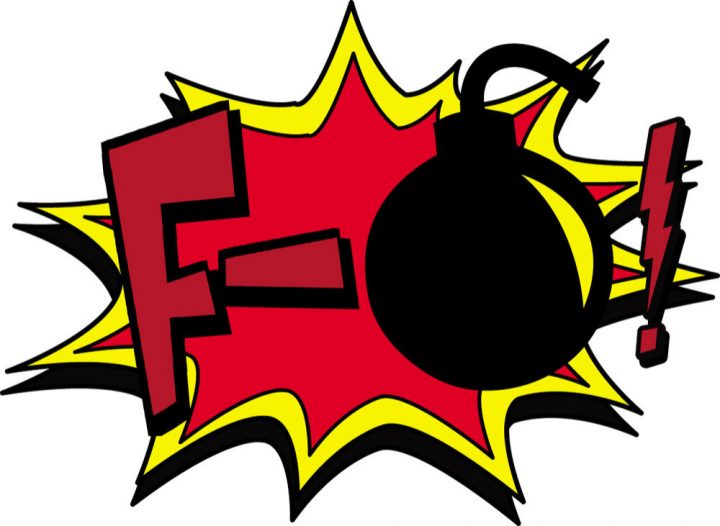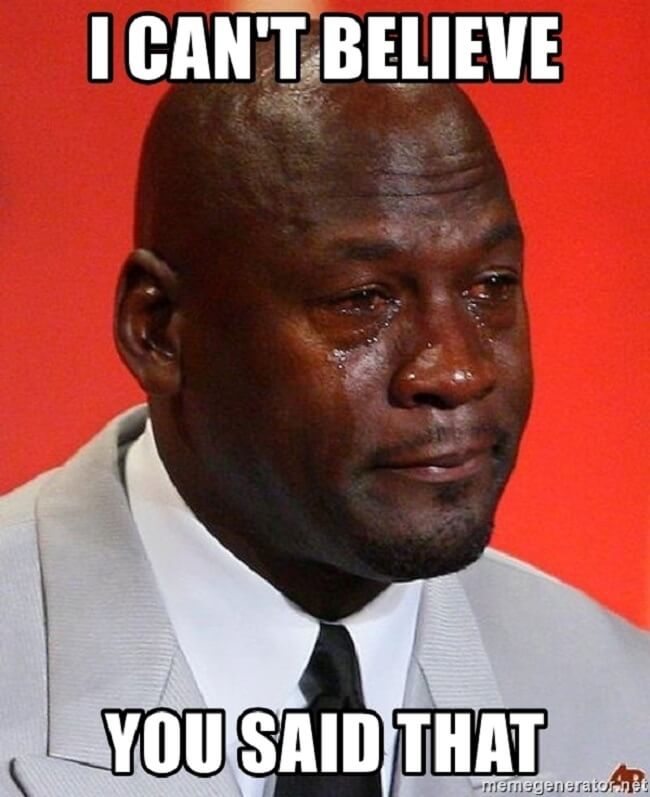Sometimes, the things we find amusing can spark a bit of a debate, especially when we talk about what some people call "offensive jokes." It's a pretty interesting area, this idea of humor that pushes boundaries, and how different groups of people react to it. You see, what one person thinks is a truly funny line, another might find really upsetting, and that difference in how we feel about things is a big part of why these conversations happen.
You find these kinds of discussions popping up all over the place, especially on the internet, where folks share all sorts of quips and jests. There are online communities, like those dedicated to humor, that have millions of members, and they're often a spot where people gather to share what they think are the funniest bits of comedy. Some of these places are known for letting people share just about anything, even the kind of humor that makes others a little uncomfortable, or, you know, a lot uncomfortable.
It's a space where people sometimes feel like they can let their sense of humor, even the really wild kind, run free. They might even say that if you're too sensitive, this isn't the spot for you. This whole situation, with people sharing jokes that some consider to be way over the line, really brings up some important questions about what humor is for, and where we draw the line when it comes to making people laugh at someone else's expense. It’s almost like, there’s a tension between wanting to be free with your words and wanting to be thoughtful of others.
Table of Contents
- What Makes a Joke "Offensive Jokes"?
- How Do Online Communities Handle Offensive Jokes?
- The Line Between Humor and Harm - Exploring Offensive Jokes
- Are Offensive Jokes a Sign of Political Correctness Gone Too Far?
- The Pushback - Why Some People Just Can't Stand Offensive Jokes
- What Role Do Stereotypes Play in Offensive Jokes?
- Finding Your Own Funny - A Personal Look at Offensive Jokes
- The Future of Humor - Considering Offensive Jokes
What Makes a Joke "Offensive Jokes"?
When we talk about humor that some folks label as "offensive jokes," it often comes down to what the joke is about and who it might be aimed at. Some people believe that any joke can be funny, no matter the subject, as long as it's truly meant to be a joke and not something mean-spirited. They might even say that the more shocking a joke is, the better it is, because it really gets a reaction. For example, some people find humor in jokes that are about sensitive topics, or that play on ideas about different groups of people. It's almost like, the intent behind the words is what matters most to them.
But then, there are other people who see things very differently. They might point out that some jokes, even if they're just "jokes," can still cause hurt or reinforce harmful ideas. They might wonder if it's really okay to make light of serious struggles, like people facing hardship or illness. This is where the conversation gets a bit tricky, because what one person considers harmless fun, another might see as deeply disrespectful. So, you know, it’s not always easy to figure out where everyone stands.
The core of what makes a joke an "offensive joke" for some people is often tied to whether it targets a group that already faces difficulties or negative ideas in the world. It’s about whether the humor adds to problems or just makes light of them. This is a very real concern for many, and it explains why certain jokes, even if they get a laugh from some, can create a lot of anger and sadness in others. It’s not just about being sensitive; it’s about how humor can affect real people and their experiences, actually.
How Do Online Communities Handle Offensive Jokes?
Online spaces, especially those dedicated to sharing humor, have a very interesting way of dealing with what some might call "offensive jokes." You have these massive communities, some with tens of millions of members, where jokes are shared all the time. In many of these spots, there's a strong feeling that people should be able to say whatever they want, and that if you don't like it, you can just look away. They might even say that the internet, and places like Reddit, have become too careful about what people can say, and that this makes them feel a bit annoyed. So, in some respects, it’s a place for a sense of humor that doesn’t hold back.
These communities often have a kind of unwritten rule that says if you're easily bothered, you might not fit in. They might even use strong language to tell people who are easily upset to leave. The idea is to create a space where a very particular kind of humor, the kind that might be seen as "fucked up" by some, can be shared freely. This means that if you're looking for jokes that are always polite and considerate, you might not find them there. It's really about a specific type of comedic expression, you know.
On the other hand, the very nature of these large, open forums means that not everyone agrees with this free-for-all approach to offensive jokes. While some might be laughing, others are definitely feeling the sting. The lack of a way to easily express disagreement, like not being able to vote on comments or post new ones in certain situations, can make it feel like the conversation is one-sided. It creates a situation where some voices are heard very loudly, while others are effectively silenced, which is a bit of a challenge for everyone involved, basically.
The Line Between Humor and Harm - Exploring Offensive Jokes
Drawing a clear line between what's just a funny bit and what actually causes hurt is a really big part of the discussion around "offensive jokes." Some people genuinely believe that all jokes, no matter how wild, are simply that – jokes. They're meant to make you laugh, and you shouldn't take them too seriously. For them, the purpose of humor is to be light, to provide a break from serious things, and sometimes, to even poke fun at sensitive topics as a way of dealing with them. It’s almost like, they see humor as a way to cope with life’s difficulties.
However, for others, the impact of a joke goes beyond its intention. If a joke uses a stereotype or makes fun of a group of people who are already struggling, it can feel less like humor and more like an attack. They might point out that jokes about certain groups can reinforce negative ideas that are already out there, and that this can have real consequences for people's lives. For instance, making light of someone's difficult circumstances, like famine or illness, can feel incredibly harsh and lacking in compassion. It’s a bit like, there’s a difference between laughing with someone and laughing at them.
This difference in how people view the impact of offensive jokes is often at the heart of the disagreement. One side might say, "It's just a joke, lighten up!" while the other might respond, "This joke is actually contributing to harm." It's not always about whether someone is "too sensitive," but about how humor can affect the way we see each other and the world around us. This makes the conversation about humor a much deeper one than just whether something gets a laugh, really.
Are Offensive Jokes a Sign of Political Correctness Gone Too Far?
There's a feeling among some people that the world, especially the internet, has become a bit too careful about what can be said, and that this is making it harder to just have a good laugh. They might say that what's called "political correctness" has gone too far, and that it's stopping people from expressing themselves freely, even when it comes to humor. This view suggests that people are being too easily offended, and that this is stifling creativity and genuine comedic expression. So, in a way, they feel like the fun is being taken out of things.
For these individuals, the idea of "offensive jokes" isn't about causing harm, but about challenging norms and pushing boundaries. They might see humor that's a bit edgy as a way to test limits and to make people think, even if it makes them a little uncomfortable. They believe that if everything has to be perfectly acceptable to everyone, then humor loses its bite and its ability to be truly funny. It’s almost like, they value humor that makes you squirm a little, because that’s where the real laughs are.
This perspective often clashes with those who believe that words, even in jest, carry weight and can cause real pain. They argue that being "politically correct" isn't about being overly sensitive, but about being respectful and considerate of others, especially those who might be vulnerable. The tension between these two viewpoints is a big part of the ongoing conversation about offensive jokes, and it shows how different people approach the idea of free expression versus social responsibility, basically.
The Pushback - Why Some People Just Can't Stand Offensive Jokes
When certain jokes are shared, especially those that touch on sensitive topics or groups of people, there's often a very strong reaction from those who find them deeply upsetting. For these individuals, the jokes are not just "words"; they are reminders of real-world problems, unfair treatment, or hurtful ideas. They might feel a sense of outrage when jokes are made about things like famine, illness, or the struggles faced by particular communities, seeing it as a lack of basic human decency. You know, it’s a feeling of profound disrespect.
The anger that comes from hearing what they consider "offensive jokes" is often rooted in empathy and a desire for fairness. They might feel that making light of someone else's pain is a cruel act, and that it normalizes harmful stereotypes or negative attitudes. This pushback isn't about trying to control what people say for the sake of it, but about advocating for a more compassionate and inclusive approach to humor. It’s a bit like, they want humor to build bridges, not burn them.
This perspective emphasizes that humor, while powerful, also carries a responsibility. It suggests that while freedom of expression is important, it shouldn't come at the cost of causing significant distress or perpetuating harmful ideas about others. The strong feelings against certain offensive jokes are a clear sign that for many, humor is not just about laughter; it's also about respect, dignity, and the impact our words have on the world, actually.
What Role Do Stereotypes Play in Offensive Jokes?
A big part of why some jokes are seen as "offensive jokes" is their reliance on stereotypes. When humor is built around common, often unfair, ideas about a group of people, it can be very difficult for those people to find it funny. For example, jokes about a particular nationality being slow, or a certain ethnic group being good at math, are often based on these simplified, and sometimes hurtful, ideas. This is a very common way that jokes can go wrong, from the perspective of those who are sensitive to stereotypes, apparently.
The issue with using stereotypes in humor is that they can reinforce existing prejudices. Even if the joke teller means no harm, the joke itself can strengthen negative ideas that are already present in society. This is particularly true for jokes about groups that have historically faced discrimination or misunderstanding. It's almost like, the joke isn't just a joke; it's a small piece of a larger problem.
This is why some people find jokes about, say, people who are transgender, to be especially challenging. Because these jokes often rely on outdated or harmful ideas about identity, they can feel less like humor and more like an attack on a person's very being. The use of stereotypes in offensive jokes makes them not just unfunny for some, but also potentially damaging, as they can contribute to a climate where certain groups are seen in a negative or demeaning light, you know.
Finding Your Own Funny - A Personal Look at Offensive Jokes
When it comes to humor, especially the kind that some call "offensive jokes," everyone has their own line. What one person finds hilarious, another might find completely inappropriate. This personal boundary is shaped by our experiences, our beliefs, and the kind of world we want to live in. There's no universal rule that applies to everyone, and that's part of what makes conversations about humor so interesting, and sometimes, a little difficult. So, in some respects, it’s about what resonates with you.
For some, the appeal of "offensive jokes" might come from a desire to push against social norms, to challenge what's considered acceptable, or simply to find humor in unexpected places. They might enjoy the shock value or the feeling of being part of a group that shares a similar, perhaps edgy, sense of humor. This isn't necessarily about being mean-spirited; it's often about a particular style of comedy that they connect with. It’s a bit like, they like humor that makes you think, even if it’s a bit uncomfortable.
For others, their personal line is drawn much earlier. They might prioritize kindness, respect, and not causing harm above all else in their humor. They might find that jokes based on stereotypes or the suffering of others simply aren't funny to them, because they go against their core values. This isn't about being "too sensitive," but about having a different idea of what humor should be and what it should accomplish. This makes the whole topic very personal, actually.
The Future of Humor - Considering Offensive Jokes
Thinking about the path ahead for humor, especially when we talk about "offensive jokes," brings up some big questions. Will online spaces continue to be free-for-alls where almost anything goes, or will there be more of a move towards humor that is more considerate of everyone? The ongoing discussions about political correctness, freedom of speech, and the impact of words suggest that this conversation isn't going away anytime soon. It’s almost like, we’re all trying to figure out what’s next for laughter.
One possibility is that different communities will continue to exist, each with its own set of rules and accepted forms of humor. Some places will remain spots where "fucked up" humor can run free, while others will become spaces where a more inclusive and respectful form of comedy is encouraged. This could mean that people will increasingly seek out online communities that align with their own personal sense of what's funny and what's acceptable. You know, finding your tribe in the world of jokes.
Ultimately, the future of humor, including the place of "offensive jokes," will likely be shaped by the ongoing push and pull between the desire for unrestricted expression and the growing awareness of how words can affect people. It's a continuous conversation about where the lines are, who draws them, and what kind of laughter we want to encourage in our shared spaces. This means that humor, like society itself, will probably keep shifting and changing, basically.
This article has explored the complex and often debated topic of "offensive jokes," looking at what makes them offensive to some, how online communities handle them, and the tension between freedom of expression and the potential for harm. We've considered the role of stereotypes, the pushback from those who find such humor unacceptable, and how individual perspectives shape what we find funny. Finally, we touched on what the future might hold for humor in a world where these discussions are becoming more and more common.
Related Resources:



Detail Author:
- Name : Kacey Grimes
- Username : orn.lewis
- Email : rau.ella@yahoo.com
- Birthdate : 1991-02-27
- Address : 202 Kuhlman Drive West Jobury, KS 27688
- Phone : 283-245-4683
- Company : Hoppe, Carroll and Mills
- Job : Manager of Food Preparation
- Bio : Incidunt aut quod atque accusantium dolorem. Vel ut aliquid mollitia aut sed. Mollitia consequatur quasi suscipit ab distinctio pariatur eligendi.
Socials
instagram:
- url : https://instagram.com/devante_xx
- username : devante_xx
- bio : Ut et asperiores molestiae itaque. Qui quia aut fugit ea doloremque. Optio asperiores ut quo nulla.
- followers : 795
- following : 694
twitter:
- url : https://twitter.com/devante.rogahn
- username : devante.rogahn
- bio : Voluptatem porro nihil in excepturi aperiam. Quia inventore cupiditate omnis culpa a ut perspiciatis. Iure non odit rerum. Quidem vero dolorem ad non laborum.
- followers : 304
- following : 250